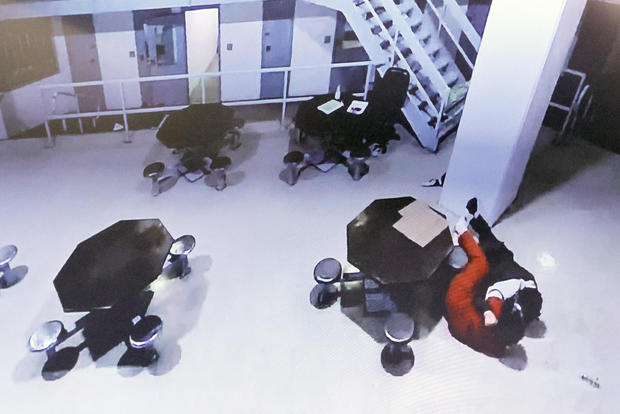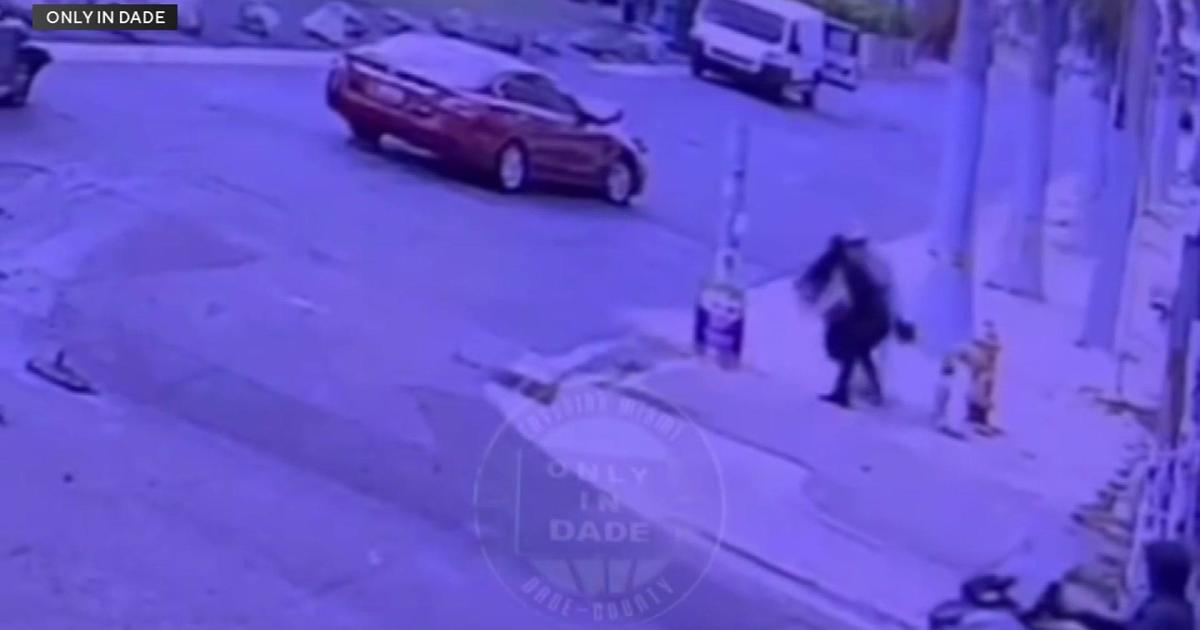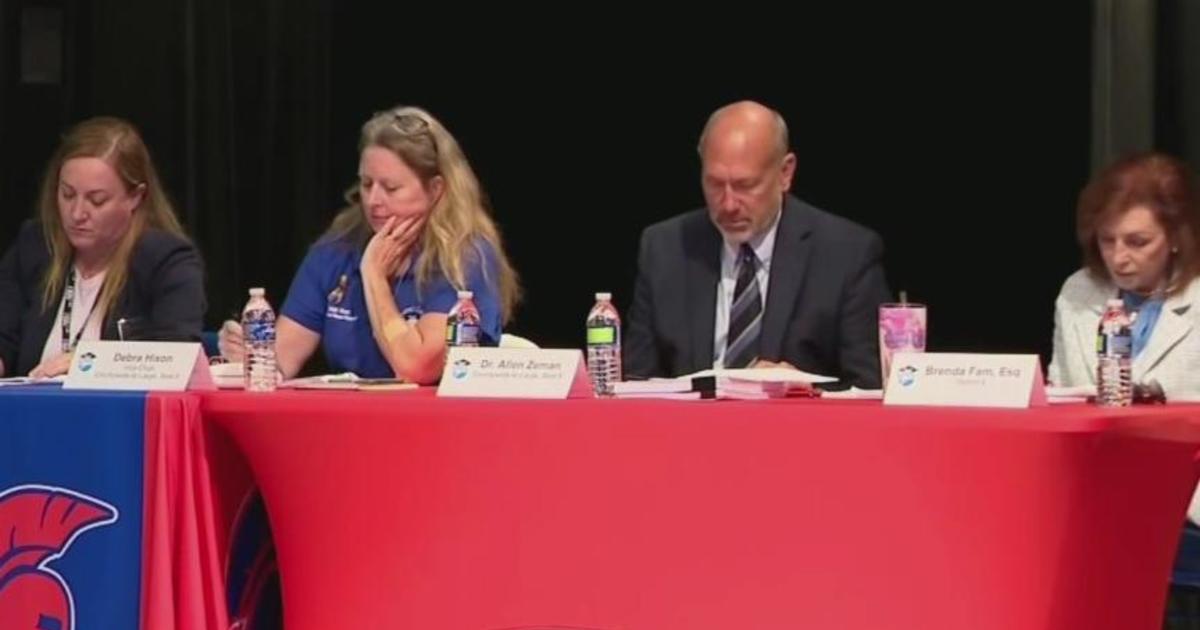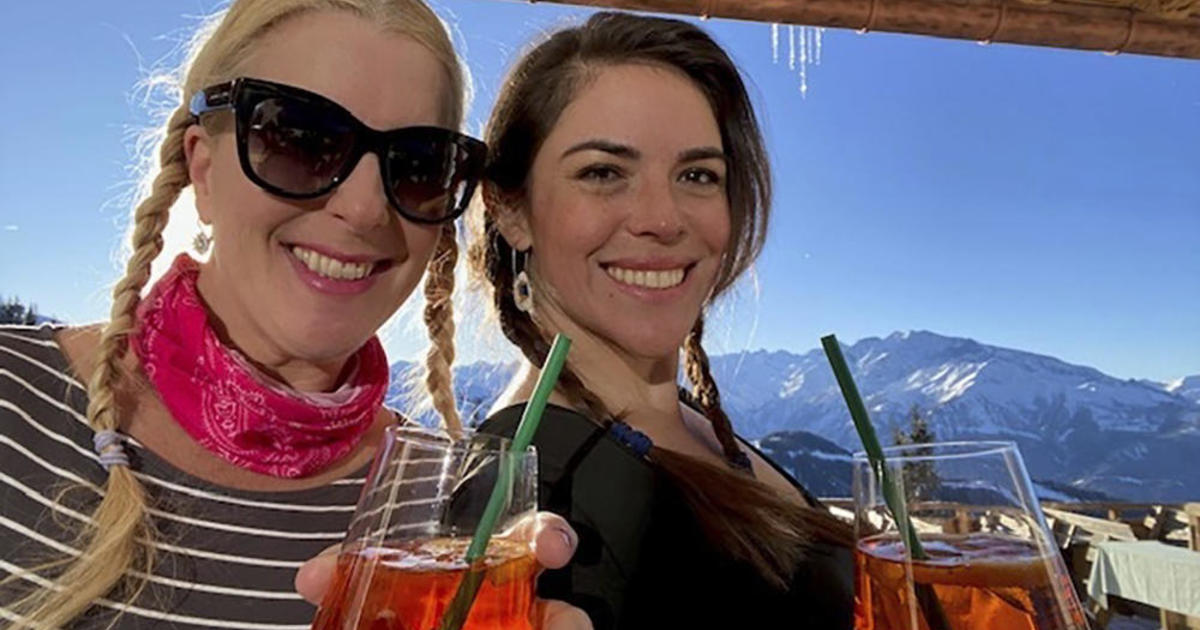Sheriff's guard involved in jail scuffle with Parkland gunman Nikolas Cruz testifies at penalty trial
FORT LAUDERDALE - Multiple witnesses were called by the state again for day eight of the sentencing trial for the Parkland school shooter Nikolas Cruz.
The first witness to take the stand was Sgt. Raymond Beltran of the Broward County Sheriff's Office. He was working in the main jail where Cruz was being held when they got into an altercation on November 13, 2018.
It was captured on surveillance video and shows Beltran and Cruz in a scuffle, rolling around on the ground. Beltran said Cruz was dragging his feet on the ground because his slides were broken. He said he told Cruz to get a new pair. That's when Cruz reportedly gave him the middle finger and charged at him.
Beltran testified that Cruz got ahold of his Taser.
"At this point, I have to get the Taser back. He could tase me he could incapacitate me," he told the jury.
The Taser discharged, but the electrically charged probes missed both of them. Beltran regained control of the Taser and used it to punch Cruz, staggering him. Cruz then got on the ground, was handcuffed and put back into his cell. Beltran suffered no serious injuries.
Cruz later pleaded guilty to the assault. Prosecutors are using that conviction as an aggravating circumstance as they argue Cruz should be sentenced to death.
The next witness to be called to the stand was Broward Sheriff's Detective Kevin Forsberg who found Cruz's cell phone in the east stairwell of the first floor of the 1200 building at Marjory Stoneman Douglas High School.
"I was about the midway point of the hallway. I started calling that phone to see if I could hear it anywhere in the hallway. I heard it faintly. Sounded like it was coming from the east location of the hallway. I continued calling it multiple times until I got to the east end of the hallway and then I could hear that it was coming from inside the stairwell location on the first floor," he said.
We can likely expect to hear about the contents found on Cruz's phone including the cell phone video he recorded just days before the massacre saying he would be the next school shooter.
Also presented was evidence of Cruz's growing obsession to commit a massacre, seeing internet posts and searches about mass killings in the months before he went on a killing spree at Stoneman Douglas High.
In an emotionless monotone, Broward County sheriff's Detective Nick Masters read hundreds of searches and comments Cruz made starting seven months before the Feb. 14, 2018, massacre as prosecutors try to prove he planned it.
They included searches about the mass shootings at Columbine High School in 1999, a movie theater in the Denver suburbs in 2012, Virginia Tech University in 2007, a South Carolina Black church in 2015, and a Las Vegas country music concert in 2017.
In comments, Cruz praised Elliot Rodger, who killed six people in 2014 before taking his own life and has become a touchstone among disturbed young men who identify as "involuntary celibates" or "incels" because women won't date them.
In posts on YouTube, Cruz wrote "I wanna kill people," "I'm going to be a professional school shooter," "I have no problem shooting a girl in the chest" and "No mercy." He wrote "It makes me happy to see people die" followed by a smiley face emoji and "I love to see the familys suffer."
About two months before his attack, Cruz turned his focus toward Stoneman Douglas, the school he periodically attended before he was expelled in early 2017. He researched the school's operating hours and pulled up a campus map.
Finally, less than 24 hours before the massacre, he searched for, "How long does it take a cop to show up at a school shooting?" He fled the school after seven minutes.
Some of the seven men and five women on the jury and their 10 alternates scribbled madly as Cruz's words were posted on video screens in front of them. Victims' parents and family members in the gallery audibly gasped as they saw the posts, with some shaking their heads.
Under questioning by Cruz's attorney, Masters said all the posts were in public forums and many under his own name. He said that, to his knowledge, Google and YouTube had no method for locating and reporting such posts and searches.
"It's alarming to recognize how many opportunities that were missed," says licensed health counselor Amie Thomas.
Cruz, 23, pleaded guilty to 17 counts of first-degree murder in October, meaning the jury will decide only whether he is sentenced to death or life without parole. The shooting left 14 students, a teacher, the athletic director and an assistant football coach dead.
With the trial now in its second week, the seven-man, five-woman jury and its 10 alternates have seen terrifying video of the attack, and heard from traumatized survivors and police officers who rushed into the nightmarish scene inside a three-story classroom building. They have examined gruesome autopsy and crime scene photos.
They also saw video depicting Cruz's nonchalance as he walked to a sandwich shop to buy a drink and then visited a McDonald's just minutes after he fled the school. On Monday, they saw the AR-15-style semi-automatic rifle Cruz fired more than 150 times.
This is the deadliest mass shooting in U.S. history to reach trial. Nine U.S. gunmen besides Cruz who killed at least 17 people died during or immediately after their shootings, either by suicide or police gunfire. The suspect in a 10th, the 2019 slaying of 23 people at a Walmart in El Paso, Texas, is awaiting trial.
Prosecutors said Wednesday they plan to end their case next week after the jury visits the building where the massacre occurred. It has been sealed off since shortly after the shooting and its walls and floors remain blood-stained and bullet-pocked, with rotted Valentine's Day flowers and deflated balloons strewn about.
After a one-week break, the trial will resume in mid-August with a defense case that will focus on Cruz's life, including his birth mother's drinking during pregnancy, his long history of emotional and mental problems, his alleged sexual abuse and the deaths of his adopted parents. The prosecution will then get to present a rebuttal case.
"Yes, there are factors that may enable and lead to this type of behavior, but that's not an excuse," says Thomas.
When jurors eventually get the case, probably in October or November, they will vote 17 times, once for each of the victims, on whether to recommend capital punishment.
For each death sentence, the jury must be unanimous or the sentence for that victim is life. The jurors are told that to vote for death, the prosecution's aggravating circumstances for that victim must, in their judgment, "outweigh" the defense's mitigators. A juror can also vote for life out of mercy for Cruz. During jury selection, the panelists said under oath that they are capable of voting for either sentence.





